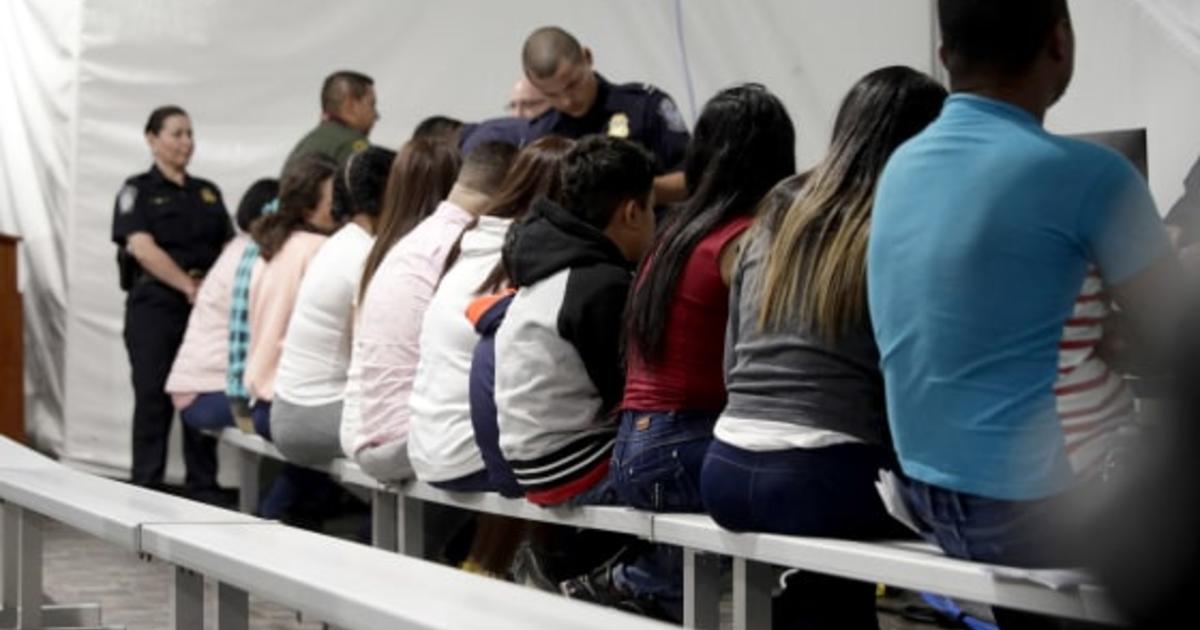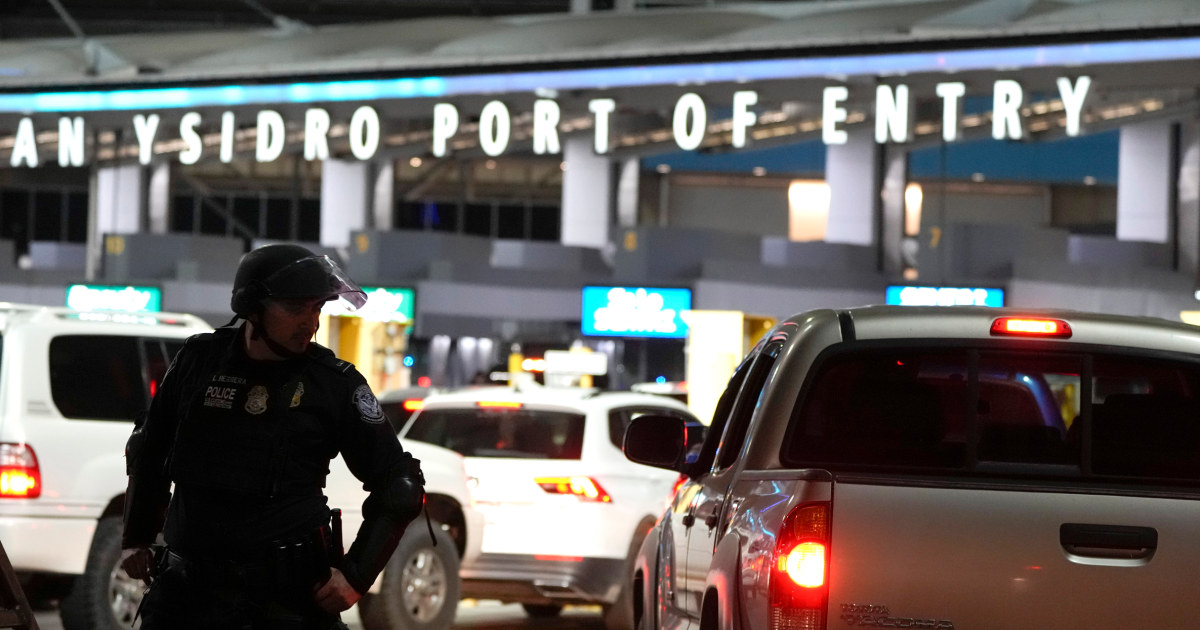By Gabe Gutierrez - NBC News
Before a historic increase in the number of migrants trying to cross the border into the United States, immigration judges are warning that the system for reviewing cases is on the verge of collapse.
"Basically we are solving cases of the magnitude of a possible death sentence but we have to do it in an environment designed for fast cases such as traffic violations," says Judge Dana Leigh Marks to NBC News, sister network of Noticias Telemundo.
Marks points out that many of the dedicated judges face serious emotional and physical exhaustion from the demands, and that there is a lot of frustration.
Nationwide there are approximately
500 immigration judges.
[Defendants in diapers? Immigrant children appear alone in court]
They mainly review asylum applications, with which it is up to them to decide who can stay in the United States and who ends up being deported.
When President Joe Biden took office in January, there was already a list of
unsolved cases
of
more than 1.3 million pending decisions.
Since then it has only increased the flow of people arriving at the border asking for refuge.
Among the main concerns of the four judges who spoke to NBC News are that there are not enough magistrates to review everything, that they lack support staff and that they feel a lot of political pressure from the Justice Department.
[Crossing the border becomes a lottery: some migrants are returned (and kidnapped), others manage to stay]
During the Donald Trump administration, those political pressures were to rush deportation orders and to have more of them, the judges say.
Even knowing that many asylum seekers face probable death if they are returned to their countries of origin.
Judges in federal criminal courts are appointed to office for life, which to some extent protects them from
feeling pressured to decide one way or another.
However, immigration judges are employees of the Justice Department: they are appointed by the attorney general, who usually changes depending on who is in the White House, and they answer to the attorney general.
Asylum seekers at a processing center next to a temporary immigration court, set up in tents, in Laredo, Texas, in September 2019.
And although there is a union for immigration judges, that union is under threat, and could disappear due to actions initiated by the Trump administration.
"We are in the biggest legal fight of our lives to ensure that our judicial independence is valued and maintained," says Judge Amiena Khan.
"This is how judges can do our job."
[Supreme Court issues ruling that may complicate asylum applications out of credible fear]
Judge Khan is president of the union, the National Association of Immigration Judges, or NAIJ.
NAIJ has collectively represented the interests of immigration judges since 1979, but former Attorney General William Barr sought to have the union lose its certification and the federal agency for labor relations between branches of the federal government broke precedent in its determination.
It ruled that immigration judges are similar to managing officers and therefore do not have the right to a group for collective bargaining.
NAIJ is appealing the ruling and resolution is pending.
With the future still uncertain for the union, judges who spoke to NBC News say that judicial independence is at stake.
"
We should not be used as a tool for law enforcement
or security
agencies
," Marks emphasizes.
"This is not how Congress thought the involvement of immigration courts in the US immigration system should be," he adds.
[The Supreme Court restricts the possibilities of deported immigrants to return to the country even if their expulsion was unjust]
Judge Marks, who works in San Francisco, said that due to the huge list of pending cases, quotas of cases reviewed every week were established, and that this jeopardizes the due process that petitions should have.
"If I am forced to move a case quickly then the person [applicant]
has
practically
no way to find a lawyer to represent him,
" he explains, as asylum petitions do not receive public office attorneys as happens in other criminal or civil courts. .
Specialists indicate that not having someone to defend asylum seekers usually results in lost cases for these migrants.
A person detained at the Stewart Detention Center, an ICE facility in Georgia that borders an immigration court.
Judge Charles Honeyman served in the immigration courts of New York and Philadelphia before retiring last year during the Trump Administration.
"I probably retired a few years earlier than I would have done otherwise, motivated to do so because
inefficiencies caused by political perceptions are causing unnecessarily long to-do lists,
" says Honeyman.
Retired Judge Lisa Dornell worked in Baltimore and also retired much earlier than expected when Trump was still in power.
"It broke my heart to see so many obstacles and impediments that do not allow us to help all the children that we wish we could help," says Dornell.
For now, the workload of judges continues to increase.
In May alone, agents detained more than 180,000 migrants at the U.S. border with Mexico, according to Customs and Border Protection data. It was the largest monthly border apprehension figure in two decades.


/cloudfront-eu-central-1.images.arcpublishing.com/prisa/RULPYNDV5FMFMTRM6OUNH3K3BY.jpg)









/cloudfront-eu-central-1.images.arcpublishing.com/prisa/KMEYMJKESBAZBE4MRBAM4TGHIQ.jpg)


